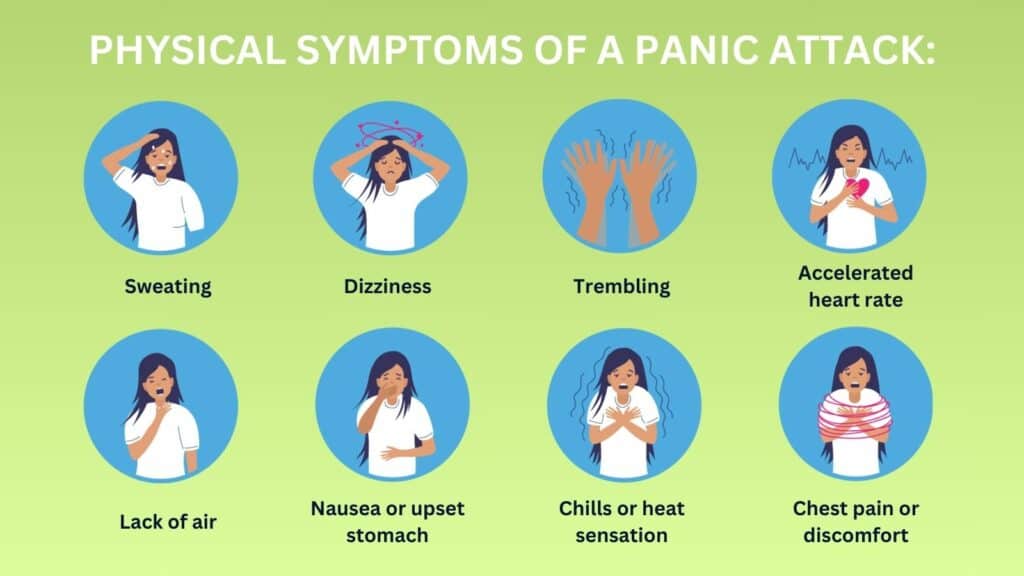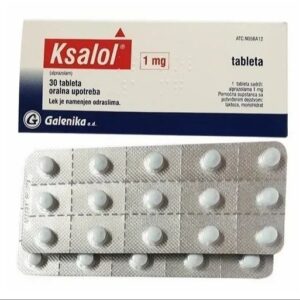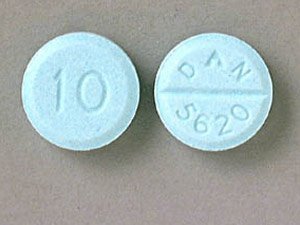Understanding the Role of Hormones in Panic Attacks: What Science Tells Us
Panic attacks are a common and distressing experience for many, characterized by sudden bursts of intense fear or anxiety, accompanied by a range of physical symptoms like a racing heart, shortness of breath, and dizziness. While stress and anxiety are often seen as the main triggers for panic attacks, there’s growing evidence that hormones play a significant role in these episodes.
In this article, we will explore the science behind the connection between hormones and panic attacks, shedding light on how certain hormones like cortisol, adrenaline, and serotonin contribute to the onset of these distressing episodes. Understanding how hormonal imbalances can trigger panic attacks is crucial for developing effective coping strategies and treatment options.
For those looking for a deeper understanding of this connection, GenericPills.us offers a variety of resources and solutions for managing anxiety, panic disorders, and the hormonal influences that contribute to them. With the right knowledge and tools, it’s possible to regain control and improve overall well-being.
What Are Panic Attacks?
Before diving into the role of hormones, it’s essential to first understand what panic attacks are. A panic attack is a sudden episode of intense fear or anxiety that can occur without warning. It often reaches its peak within minutes and can be triggered by specific situations, stress, or anxiety-provoking events, or even happen spontaneously. The symptoms can vary but typically include:
- Rapid heartbeat or palpitations
- Sweating
- Trembling or shaking
- Shortness of breath or feeling smothered
- Chest pain or discomfort
- Dizziness or lightheadedness
- Feelings of choking
- Nausea or abdominal distress
- Chills or hot flashes
- A sense of detachment or unreality
While panic attacks are generally short-lived, they can be highly distressing. For some individuals, experiencing recurring panic attacks can lead to a panic disorder, a condition characterized by the fear of having future attacks and the avoidance of places or situations where they may occur.

The Role of Hormones in Panic Attacks
Hormones are chemical messengers that regulate various processes in the body, including mood, stress response, metabolism, and reproductive functions. Some hormones have a direct impact on the nervous system, influencing how the brain and body respond to stress, fear, and anxiety.
Some of the major hormones related to panic attacks include cortisol, adrenaline, estrogen, progesterone, and serotonin. Let us look into this in greater detail, describing exactly how these hormones contribute to the development of a panic attack:
1. Cortisol: The Stress Hormone
Cortisol is sometimes referred to as the “stress hormone” because it is released by the adrenal glands in response to stress. When your body perceives a threat, it enters a state of “fight or flight,” and cortisol levels rise to prepare the body to respond.
This heightened state of alertness can lead to physical symptoms such as increased heart rate, rapid breathing, and muscle tension.
For those suffering from panic disorder or anxiety, cortisol levels can become dysregulated, creating a state of constant heightened stress. This puts the body in a state of constant readiness, increasing the chances of a panic attack.
In addition, elevated cortisol levels are linked to other mental health disorders, such as anxiety and depression, which are often associated with panic attacks.
2. Adrenaline – The Fight-or-Flight Hormone
Adrenaline, which is also known as epinephrine, is another hormone that is secreted in response to the fight-or-flight system of the body. Adrenaline raises the heart rate and opens up air passages and raises the energy levels. All these result in a physical reaction to instant stressors in the body.
However, sometimes adrenaline is secreted when a situation is not threatening at all, like panic attacks, causing overwhelming physical symptoms such as chest pains, heart palpitations, and shortness of breath.
For individuals with panic attacks, the body may overreact to a stressor, and because of an imbalance in adrenaline release, this could amplify the symptoms. The heightened arousal state can result in a domino effect of feelings, including dizziness and a feeling of losing control, which can contribute to it itself.
3. Estrogen and Progesterone – Hormones That Affect Mood
Estrogen and progesterone are the two major female sex hormones that play a significant role in regulating mood and emotional well-being. These hormones fluctuate throughout the menstrual cycle, pregnancy, and menopause, which can impact mood stability. For many women, hormonal imbalances or fluctuations in these hormones can trigger or worsen panic attacks.
Most women, in the premenstrual phase of the menstrual cycle, experience a fluctuation in anxiety or panic-related symptoms as the estrogen and progesterone levels become more unstable. This condition is called premenstrual syndrome, and it has the potential to interfere significantly with a woman’s emotional and mental health.
During perimenopause and menopause, with decreasing estrogen levels, anxiety tends to increase, leading to a greater frequency of it.
4. Serotonin – The Mood-Regulating Hormone
Serotonin is a neurotransmitter that is involved in mood regulation, sleep, appetite, and anxiety. It is referred to as the “feel-good” chemical because it makes people feel good and happy. Low serotonin has been associated with mood disorders like anxiety, depression, and panic disorder.
Studies have indicated that individuals with a panic disorder exhibit lower levels of serotonin, a neurotransmitter; hence, a person is vulnerable to panic attacks. This is also one of the reasons why drugs belonging to selective serotonin reuptake inhibitors are commonly used as an antidepressant in the management of panic disorder and anxiety. As such, when the level of serotonin increases in the body, it helps level out the moods and reduce panic attacks.
How Hormonal Imbalances Can Contribute to Panic Attacks
When hormones are thrown out of kilter, then the body naturally responds to stress in abnormal ways, resulting in panic attacks. Hormonal changes due to stress, diet, lifestyle, and age can produce an over-response or under-response in the body, which provokes panic attacks. For instance, people under hormonal changes through menopause or pregnancy or other thyroid imbalances may find they are more inclined to anxiety and even panic attacks.
For instance:
a. Thyroid Imbalances: The thyroid gland controls the metabolism and energy levels. An overactive thyroid, or hyperthyroidism, can cause an increase in anxiety and restlessness, while an underactive thyroid, or hypothyroidism, can lead to fatigue and depression. Both conditions can exacerbate the symptoms of panic attacks.
b. Perimenopause and Menopause: Changes in hormones at this stage of life can cause increased anxiety, irritability, and panic symptoms due to fluctuating levels of estrogen and progesterone.
c. Pregnancy: The major hormonal variations during pregnancy often lead to greater stress and anxiety, especially during the first and third trimesters.
Methods of Controlling Panic Attacks Linked to Hormonal Imbalance

Although hormones can be a contributor to panic attacks, there are several methods one can use to overcome hormonal imbalance or reduce the recurrence and severity of these attacks:
a. See a Doctor: If you feel that hormonal imbalances might be causing your panic attacks, go to a doctor. He or she or an endocrinologist can assess your hormone levels and recommend some treatments, like hormone replacement therapy, medication for a thyroid disorder, or changing the birth control medication.
b. Adopt Stress-Reducing Practices: Engage in regular stress-management techniques such as mindfulness meditation, yoga, deep-breathing exercises, or progressive muscle relaxation to lower cortisol and adrenaline levels.
c. Exercise Regularly: Physical activity helps regulate hormone levels, improve mood, and reduce anxiety. Exercise also promotes the release of endorphins, which are natural mood-boosting hormones.
d. Balanced Diet and Nutrition: Good eating habits have been shown to regulate hormones within the body, such as a healthy diet of fruits and vegetables, grains, lean proteins, and fats, which allow for stable sugar and hormone levels within the blood stream.
e. Consider Therapy: Cognitive-behavioral therapy is an effective method for treating panic attacks and anxiety. A therapist can help identify triggers, manage symptoms, and develop coping strategies to address the emotional aspects of panic.
Conclusion
A correct explanation of the role of hormones in panic attacks can help unravel the above tension and that biology intertwined with mental health is complex. Hormonal fluctuations and imbalances can significantly increase the rate and severity of panic attacks; however, that imbalance can be targeted through proper treatment, lifestyle changes, and support.
Recognizing the connection between hormones and panic attacks, people can take proactive steps in managing their mental health, reduce the impact of hormonal changes, and regain control over their well-being. If you are experiencing panic attacks and suspect hormonal involvement, seek professional advice to find a treatment plan tailored to your specific needs.























